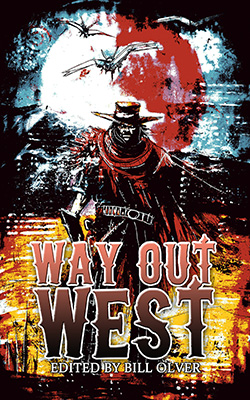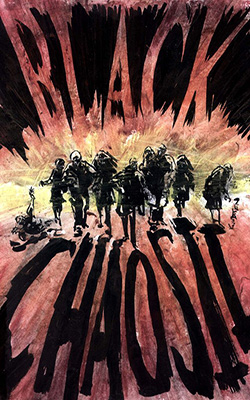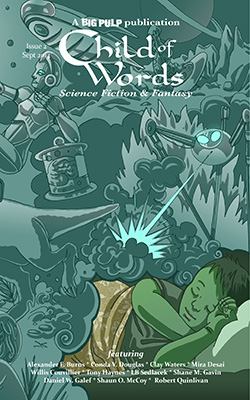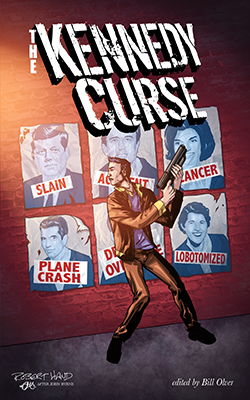I lean out the window again, craning my neck upward to look at the sky, never removing my hand from the steering wheel. Still no good, I think, as I duck my head back into the car, returning my eyes to the road speeding beneath me. The clouds never seem to give me the thick bank of cover I need, with the moon peeking out again and again. Complete darkness is required, no moonlight.
At least I've left the streetlights far behind, their last bit of fake amber glare fading away maybe ten minutes ago, on the outskirts of Williamson. But I must still be close to town, too close, for the power lines continue along, their peaks and dips following beside me on my journey, my mission, my grim task. The presence of power lines means I have yet to reach nowhere—those lines are taking their power to someplace or someone, and as long as that place or person is nearby I haven't gone nearly far enough.
I need remoteness and darkness, and those power lines and that peek-a-boo full moon show me I still have neither, even up here in the hills. Remoteness is needed to avoid strangers passing in theircars, darkness to prevent any that do pass from spying what I'm hauling out of my trunk and dragging into the woods.
I've got my shovel and a strong back. The job shouldn't take more than twenty minutes, and after that I'll have absolutely no regrets.
People in town would be horrified about what I'm doing. They'd say I'm showing him disrespect, as if they ever respected him themselves, treated him with any dignity at all. Those so-called respectable people always looked down on him, never thought he was good enough or anything but an embarrassment to the town. But though they had no use for him in life, now they'd want him in their cemetery, somehow pretending to respect him when they never did when he was alive. But I refuse to have any of that hypocrisy. Whatever his faults, he deserves better.
And he did have his faults. He never held down a steady job, never kept his house and yard maintained, never showed the proper deference to his betters. And of course he drank heavily, mostly as a fuck-you to them; since he'd never have their approval anyway, he'd just drink himself into oblivion, briefly enjoying the buzz for a while before descending into incoherence.
I'd show up hours beforeclosing time—answering the bar's nightly phone call, always the good son—to drag him home. Leaning heavily on my shoulder, he'd spew insults against the town and its lies and its idiocy all the way back to our house, his feet wobbling all over the sidewalk. At the house, he'd rant for a while longer before passing out, sleeping the night through and getting up the next morning to do it all over again.
It's done. I wipe my hands, observe a moment of silence, and turn away.
I emerge from the woods, shovel trailing behind me. The moon glows unseen behind an afghan of clouds, a sight he would have liked. I know he would have been happier here, in his beloved hills, under an elusive moon. He never felt at home in town, never felt welcomed though he lived there his entire life. He would have gladly left for these hills long ago, but he had to stay where the work was, the booze getting him by.
Watching after him was all that kept me in town; now that he's at rest there's no reason to stay. I start the engine and steer onto the road, heading away from the power lines and streetlights of the distant town that was home for neither of us, and from the shadowy hills that now can never be home for me.
Quit These Hills
originally published May 5, 2008
Pete Anderson lives in Joliet, Illinois with his lovely wife and charming daughter. His stories have appeared in Storyglossia, THE2NDHAND, RAGAD, Wheelhouse and elsewhere. His debut novella, Wheatyard, was published in 2013 by Kuboa Press. Visit Pete online at www.petelit.com.
Search: Pete Anderson





